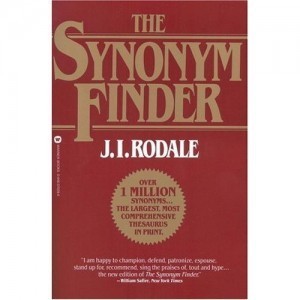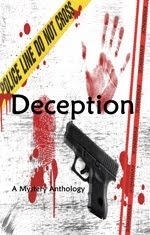Terry Odell's Blog, page 277
July 15, 2011
Friday Field Trip - We Have Liftoff
Last week Jason traveled to Florida to observe the final space shuttle launch. He was fortunate that the launch went off on schedule; in all our years of living in Orlando, few of them did. I'm sure the photographs are all the more meaningful given that they were taken live.
There aren't as many pictures as I normally share--but he had a 40 second window before the shuttle disappeared into the clouds. Enjoy this historic occasion!
Atlantis on pad 39A before dawn.

STS-135 Atlantis clears pad 39A around 11:28am EDT on July 8th.

Don't forget to click to see the rest!
Immediately after launch, Atlantis begins the "roll maneuver" to turn upside-down.

As the shuttle's speeds reach supersonic, you can see vapor cones around the top of the solid rocket boosters (SRBs).

Atlantis disappears into the clouds 40 seconds after liftoff.

See more of Jason's work here.
There aren't as many pictures as I normally share--but he had a 40 second window before the shuttle disappeared into the clouds. Enjoy this historic occasion!
Atlantis on pad 39A before dawn.

STS-135 Atlantis clears pad 39A around 11:28am EDT on July 8th.

Don't forget to click to see the rest!
Immediately after launch, Atlantis begins the "roll maneuver" to turn upside-down.

As the shuttle's speeds reach supersonic, you can see vapor cones around the top of the solid rocket boosters (SRBs).

Atlantis disappears into the clouds 40 seconds after liftoff.

See more of Jason's work here.
Published on July 15, 2011 04:00
July 14, 2011
Another Day, Another Editor
What I'm reading: Still Life With Murder, by P. B. Ryan
If you haven't checked out WHEN DANGER CALLS as the Book of the Day featured at Ereader News Today, take a minute to pop over.
 And thanks for all your comments and suggestions yesterday. I'll send a list to the editor, and will update you on our final answer.
And thanks for all your comments and suggestions yesterday. I'll send a list to the editor, and will update you on our final answer.
Speaking of editors, I seem to be in editing mode these days. Just as I'm finishing up with edits on my short story, I get the copy edits for my next Blackthorne, Inc. story, ROOTED IN DANGER, which is due to be released next April. (Note: reminder to those who have been following my discussion of editorial preferences with my police procedural short story, this post is about a different story, a different publisher, and a different editor.)
I've already worked with the first round edits, where my editor and I worked with the manuscript I'd submitted to Five Star. We worked together to turn in the best possible product. But from there, it goes to their copy editing department, and they go over it carefully. Despite the efforts made to give them something perfect, they're probably going to find things that need attention.
Much as I dislike working with Track Changes, these edits come back in a pdf document, so you can't really make changes. Anything the editor changed will show up very much like it does in Track Changes, but there's no "accept/reject" option. Instead, you create a new document in Word, noting page numbers and paragraphs, and noting anything you disagree with. For the most part, changes are things to be sure the manuscript conforms to house style, and catching inconsistencies. For example, the heroine's family business is Epicurean Unlimited. However, in two places, I'd written Epicurean, Unlimited. Neither the first round editor nor I noticed it, but copy editors are alert to things like this.
But, just as the original editor and I missed some things, I'm not comfortable simply scrolling through the file looking for the editor's changes. I have until July 27th to return the manuscript with my accompanying comments, and I intend to read the entire book again. However, this kind of a read isn't for story, or even (one hopes) for continuity. It's for finding errors. This is the kind of reading where you can only read a few chapters at a sitting.
And, because I'm busy working on those edits, here's a snippet from the book as a sneak preview. For those of you who read my guest post at "Under the Tiki Hut", you might recognize the "inspiration" for the scene.
"Say again, Fozzie. You're breaking up."
Foster Mayhew slapped the radio. He took a calming breath and wiped his palms on his cargo pants. Several hundred feet below him, in the dense foliage of the tropical island jungle, Hotshot, the team medic, had their target. A few minutes and they'd be aboard the helo. Safe.
Focus. Almost clear. His heartbeat ticked away the seconds.
Fozzie kept his voice steady. "Another storm band is closing in. Fast. Get her up here," Fozzie barked into the radio. "Now."
Endless seconds ticked by. "Target is ready for transport," Hotshot said.
"Thank God," Fozzie whispered under his breath. He keyed the radio. "Hotshot, hold the hell on. Manny, start winching."
All too slowly, the litter rose from the jungle below. Blackthorne, Inc. had been hired to get the target out, and that's what they'd done. However, alive was understood to be part of the deal, and from the look on Hotshot's face when he brought her on board, it wasn't a given. Yet.
"All accounted for," Manny said. "We're clear."
Grinch, the pilot, did the helicopter equivalent of pedal to the metal and they were off.
"Another successful mission, mates," Fozzie said with forced bravado. "Chalk one more up to Blackthorne, Incorporated."
When he didn't get a response, Fozzie glanced over his shoulder. Hotshot knelt over their target. Kathleen? Katherine? Didn't matter. Keeping them anonymous made the job easier if things went south. And since people trusted Blackthorne for its discretion, Fozzie preferred to know only what was necessary for the mission. Getting the target out of the jungle was their job, and they'd done it.
"How's the patient?" Grinch asked.
"I wouldn't know. Hotshot's the medic. Me, I'm just the one who saves your arses."
"And we're glad you do, them being mighty fine asses and all," Grinch replied.
"Shut up and fly," Fozzie said. "I'll alert the boss."
An ambulance waited at the airstrip. Four men rushed a gurney to the helo. Within seconds, the ambulance tore away, sirens screaming, lights flashing.
"She gonna be all right?" Fozzie asked. "Did we get her in time?"
"I hope so." Hotshot's grim expression sent a knife through Fozzie's belly. "She's dehydrated, running a high fever. The local specialists are probably familiar with whatever bugs lurk here."
"Hey, mates, we did our part. It's out of our hands." Fozzie brushed his palms together and wiped them on his pants. "How about a beer?"
"You're buying," Grinch said.
Be sure to come back tomorrow. Jason took a trip to Florida to be on hand in person for the final space shuttle launch. You'll want to see his pictures.
If you haven't checked out WHEN DANGER CALLS as the Book of the Day featured at Ereader News Today, take a minute to pop over.
 And thanks for all your comments and suggestions yesterday. I'll send a list to the editor, and will update you on our final answer.
And thanks for all your comments and suggestions yesterday. I'll send a list to the editor, and will update you on our final answer.Speaking of editors, I seem to be in editing mode these days. Just as I'm finishing up with edits on my short story, I get the copy edits for my next Blackthorne, Inc. story, ROOTED IN DANGER, which is due to be released next April. (Note: reminder to those who have been following my discussion of editorial preferences with my police procedural short story, this post is about a different story, a different publisher, and a different editor.)
I've already worked with the first round edits, where my editor and I worked with the manuscript I'd submitted to Five Star. We worked together to turn in the best possible product. But from there, it goes to their copy editing department, and they go over it carefully. Despite the efforts made to give them something perfect, they're probably going to find things that need attention.
Much as I dislike working with Track Changes, these edits come back in a pdf document, so you can't really make changes. Anything the editor changed will show up very much like it does in Track Changes, but there's no "accept/reject" option. Instead, you create a new document in Word, noting page numbers and paragraphs, and noting anything you disagree with. For the most part, changes are things to be sure the manuscript conforms to house style, and catching inconsistencies. For example, the heroine's family business is Epicurean Unlimited. However, in two places, I'd written Epicurean, Unlimited. Neither the first round editor nor I noticed it, but copy editors are alert to things like this.
But, just as the original editor and I missed some things, I'm not comfortable simply scrolling through the file looking for the editor's changes. I have until July 27th to return the manuscript with my accompanying comments, and I intend to read the entire book again. However, this kind of a read isn't for story, or even (one hopes) for continuity. It's for finding errors. This is the kind of reading where you can only read a few chapters at a sitting.
And, because I'm busy working on those edits, here's a snippet from the book as a sneak preview. For those of you who read my guest post at "Under the Tiki Hut", you might recognize the "inspiration" for the scene.
"Say again, Fozzie. You're breaking up."
Foster Mayhew slapped the radio. He took a calming breath and wiped his palms on his cargo pants. Several hundred feet below him, in the dense foliage of the tropical island jungle, Hotshot, the team medic, had their target. A few minutes and they'd be aboard the helo. Safe.
Focus. Almost clear. His heartbeat ticked away the seconds.
Fozzie kept his voice steady. "Another storm band is closing in. Fast. Get her up here," Fozzie barked into the radio. "Now."
Endless seconds ticked by. "Target is ready for transport," Hotshot said.
"Thank God," Fozzie whispered under his breath. He keyed the radio. "Hotshot, hold the hell on. Manny, start winching."
All too slowly, the litter rose from the jungle below. Blackthorne, Inc. had been hired to get the target out, and that's what they'd done. However, alive was understood to be part of the deal, and from the look on Hotshot's face when he brought her on board, it wasn't a given. Yet.
"All accounted for," Manny said. "We're clear."
Grinch, the pilot, did the helicopter equivalent of pedal to the metal and they were off.
"Another successful mission, mates," Fozzie said with forced bravado. "Chalk one more up to Blackthorne, Incorporated."
When he didn't get a response, Fozzie glanced over his shoulder. Hotshot knelt over their target. Kathleen? Katherine? Didn't matter. Keeping them anonymous made the job easier if things went south. And since people trusted Blackthorne for its discretion, Fozzie preferred to know only what was necessary for the mission. Getting the target out of the jungle was their job, and they'd done it.
"How's the patient?" Grinch asked.
"I wouldn't know. Hotshot's the medic. Me, I'm just the one who saves your arses."
"And we're glad you do, them being mighty fine asses and all," Grinch replied.
"Shut up and fly," Fozzie said. "I'll alert the boss."
An ambulance waited at the airstrip. Four men rushed a gurney to the helo. Within seconds, the ambulance tore away, sirens screaming, lights flashing.
"She gonna be all right?" Fozzie asked. "Did we get her in time?"
"I hope so." Hotshot's grim expression sent a knife through Fozzie's belly. "She's dehydrated, running a high fever. The local specialists are probably familiar with whatever bugs lurk here."
"Hey, mates, we did our part. It's out of our hands." Fozzie brushed his palms together and wiped them on his pants. "How about a beer?"
"You're buying," Grinch said.
Be sure to come back tomorrow. Jason took a trip to Florida to be on hand in person for the final space shuttle launch. You'll want to see his pictures.
Published on July 14, 2011 04:00
July 13, 2011
Editing: Who's on the Page? 2
What I'm reading: Bound by the Heart, by Marsha Canham
What I read while away: My Sister's Keeper, by Jody Picault, Passions for the Dead, & Dying for Justice, by L.J. Sellers
Thanks to Cricket for her Jessica Fletcher Syndrome post yesterday. I know I live in a small town and have never tripped over a dead body the way they seem to turn up in Cabot Cove.
Today, WHEN DANGER CALLS is Book of the Day at eReader News Today. I hope you'll send some traffic that way.
 To continue with previous posts on when editorial input becomes editorial intrusion, I submitted my changes to the editor, and said I didn't like her changing "asshole" to "jerk."
To continue with previous posts on when editorial input becomes editorial intrusion, I submitted my changes to the editor, and said I didn't like her changing "asshole" to "jerk."
As in any writing where we're striving to create conflict and tension, the character needs to have a question or a problem. He needs a goal. As the author, it's our job to stand in the way of that goal.
In essence, there are three outcomes to any of these conflicts we throw at our characters:
1. Yes
2. No
3. Yes, but …
With the first, the conflict is basically over right there, and if it was the major conflict for the story, you're finished. However, the author can (and generally should) make sure that the "yes" brings with it unexpected consequences so more conflict or tension is generated
With the second, you're effectively making your character turn down another path.
The third, which is usually the best approach, gives the character what he wants but requires sacrifices and a re-examination of how much he wanted that goal to begin with.
Using my editorial comments as examples, and to refresh your memory (you HAVE read the post in question, of course, right?), this was the passage in question:
"Call me when you've got a dead body." I hung up the phone. I'd finally managed a few hours of shuteye, and wasn't going to function until I had a few more. On the bright side, the asshole who'd murdered two people was now behind bars. Cursing the idiot in Dispatch who'd punched my phone number instead of someone on the Missing Persons Squad, I went back to sleep.
The editor replaced "asshole" with "jerk." I said I preferred my choice. Based on the possible outcomes mentioned above, she could have come back with Yes, in which case we'd be done. Or No, in which case I'd have to decide how deep I'd want to entrench myself for the battle. Or, more along the lines of "yes, but" … her response was "I really don't like that word, but let's see what else we can come up with."
That response, in this case, is fine with me. She's not taking a hard line, and frankly, I wasn't married to the word "asshole." As long as I can divorce myself from what I consider the very lame substitute of "jerk" I'm willing to go along with finding a suitable compromise.
As I said when I posted my first segment on this topic, the question wasn't whether the word was right or wrong, but rather what the job of an editor is, and how much her own personal preferences belong on the page of my story.
So … suggestions for a reasonable substitute? Remember, this is in the internal monologue of an experiences homicide detective.
What I read while away: My Sister's Keeper, by Jody Picault, Passions for the Dead, & Dying for Justice, by L.J. Sellers
Thanks to Cricket for her Jessica Fletcher Syndrome post yesterday. I know I live in a small town and have never tripped over a dead body the way they seem to turn up in Cabot Cove.
Today, WHEN DANGER CALLS is Book of the Day at eReader News Today. I hope you'll send some traffic that way.
 To continue with previous posts on when editorial input becomes editorial intrusion, I submitted my changes to the editor, and said I didn't like her changing "asshole" to "jerk."
To continue with previous posts on when editorial input becomes editorial intrusion, I submitted my changes to the editor, and said I didn't like her changing "asshole" to "jerk."As in any writing where we're striving to create conflict and tension, the character needs to have a question or a problem. He needs a goal. As the author, it's our job to stand in the way of that goal.
In essence, there are three outcomes to any of these conflicts we throw at our characters:
1. Yes
2. No
3. Yes, but …
With the first, the conflict is basically over right there, and if it was the major conflict for the story, you're finished. However, the author can (and generally should) make sure that the "yes" brings with it unexpected consequences so more conflict or tension is generated
With the second, you're effectively making your character turn down another path.
The third, which is usually the best approach, gives the character what he wants but requires sacrifices and a re-examination of how much he wanted that goal to begin with.
Using my editorial comments as examples, and to refresh your memory (you HAVE read the post in question, of course, right?), this was the passage in question:
"Call me when you've got a dead body." I hung up the phone. I'd finally managed a few hours of shuteye, and wasn't going to function until I had a few more. On the bright side, the asshole who'd murdered two people was now behind bars. Cursing the idiot in Dispatch who'd punched my phone number instead of someone on the Missing Persons Squad, I went back to sleep.
The editor replaced "asshole" with "jerk." I said I preferred my choice. Based on the possible outcomes mentioned above, she could have come back with Yes, in which case we'd be done. Or No, in which case I'd have to decide how deep I'd want to entrench myself for the battle. Or, more along the lines of "yes, but" … her response was "I really don't like that word, but let's see what else we can come up with."
That response, in this case, is fine with me. She's not taking a hard line, and frankly, I wasn't married to the word "asshole." As long as I can divorce myself from what I consider the very lame substitute of "jerk" I'm willing to go along with finding a suitable compromise.
As I said when I posted my first segment on this topic, the question wasn't whether the word was right or wrong, but rather what the job of an editor is, and how much her own personal preferences belong on the page of my story.
So … suggestions for a reasonable substitute? Remember, this is in the internal monologue of an experiences homicide detective.
Published on July 13, 2011 04:00
July 12, 2011
Jessica Fletcher Syndrome
Today I welcome Cricket McRae to Terry's Place. Cricket's interest in traditional colonial skills is reflected in her contemporary Home Crafting Mysteries featuring Sophie Mae Ambrose. She lives in northern Colorado and fits writing around soap making and food preservation, spinning and cheese making. Her books are set in a fictionalized Cadyville, Washington, which brings up the question of just how many murders you can get away with staging in one small town.
Thanks! I'm delighted to be a guest here at Terry's Place.
 According to the Urban Dictionary, Jessica Fletcher Syndrome is a:
According to the Urban Dictionary, Jessica Fletcher Syndrome is a:
"Condition of a place or person that seems to attract a large number of murders without having an active part in that crime. From the TV-show Murder She Wrote where every week a close friend or relative of Jessica Fletcher is either murdered or suspected of murder. Suspension of disbelief is stretched to the limit."
That last is a consistent challenge for some mystery writers. Cozy authors in particular tend to set their stories in small towns where people know each other – perhaps a little too well. Here are a few things to keep in mind if you face the problem of JFS.
It's quite possible that in small towns and big cities alike, a significant number of murders look like suicide, accident, or death by natural causes – and murderers actually get away with their crimes as a result. If your enterprising protagonist is naturally inquisitive, she'll question such things more than most people, and, as a consequence, discover a murder on occasion. It becomes part of who she is, and therefore expected.
The personality of a victim counts in a limited population where folks know each other. He wouldn't do that, says someone at the local cafe, and the people at the table next to them concur. The mystery is built on someone acting out of character as much as forensic evidence.
Another possibility is to set the murder in the past. New evidence can crop up to enable your character to track a murder from ten years ago – or a hundred. Perhaps their motivation is personal, or perhaps they simply want to solve the puzzle. Often investigating the past will spill into the present, revealing secrets or getting someone else killed.
In the final seasons of Murder She Wrote the writers solved the JFS issue by jetting Jessica all over the world. However, much of the charm in that series was the small town aspect of the stories, and many fans stopped watching. However, you can move your character to another location for one book. It helps to put her in a new-but-similar situation and to surround her with her usual sidekicks or others that serve the purpose equally well.
Or you could move well outside the box and make the mystery about something other than murder. For example, in my latest book, Sophie Mae's focus for the first half of the story is on trying to prevent a murder that hasn't happened yet. And my current manuscript involves a body no one recognizes, so the mystery isn't just about whodunit, but who is it?
Yet let's be clear: You don't have to always avoid Jessica Fletcher Syndrome. Be bold. Go ahead and kill someone off and drag your protagonist into the fray. A connection to law enforcement may help, or to a lawyer or the town meddler. Maybe your character is the town meddler, and that's enough explanation for why she consistently finds herself in situations involving murder and mayhem. It can even be a source of frustration for her.
See, most readers of mystery series understand that the characters will run into an unusually high body count. They are perfectly willing to suspend their disbelief as long as the stories are interesting, the mysteries well plotted, and they want to spend more time with the characters in that small town setting. Shake things up, sure. But don't let JFS get in the way of telling the story you want to tell. The body count will work itself out.
Cricket McRae's books are available in trade paperback and as downloads for Kindle and Nook. In honor of the recent release of Wined and Died, you can enter to win a free Author Website ($900 value!) from the creative folks at Bizango Websites for Writers until July 29, 2011. For more details and information on how to enter, please visit her blog, Hearth Cricket. For more information about Cricket or her books, check out www.cricketmcrae.com
Thanks! I'm delighted to be a guest here at Terry's Place.
 According to the Urban Dictionary, Jessica Fletcher Syndrome is a:
According to the Urban Dictionary, Jessica Fletcher Syndrome is a:"Condition of a place or person that seems to attract a large number of murders without having an active part in that crime. From the TV-show Murder She Wrote where every week a close friend or relative of Jessica Fletcher is either murdered or suspected of murder. Suspension of disbelief is stretched to the limit."
That last is a consistent challenge for some mystery writers. Cozy authors in particular tend to set their stories in small towns where people know each other – perhaps a little too well. Here are a few things to keep in mind if you face the problem of JFS.
It's quite possible that in small towns and big cities alike, a significant number of murders look like suicide, accident, or death by natural causes – and murderers actually get away with their crimes as a result. If your enterprising protagonist is naturally inquisitive, she'll question such things more than most people, and, as a consequence, discover a murder on occasion. It becomes part of who she is, and therefore expected.
The personality of a victim counts in a limited population where folks know each other. He wouldn't do that, says someone at the local cafe, and the people at the table next to them concur. The mystery is built on someone acting out of character as much as forensic evidence.
Another possibility is to set the murder in the past. New evidence can crop up to enable your character to track a murder from ten years ago – or a hundred. Perhaps their motivation is personal, or perhaps they simply want to solve the puzzle. Often investigating the past will spill into the present, revealing secrets or getting someone else killed.
In the final seasons of Murder She Wrote the writers solved the JFS issue by jetting Jessica all over the world. However, much of the charm in that series was the small town aspect of the stories, and many fans stopped watching. However, you can move your character to another location for one book. It helps to put her in a new-but-similar situation and to surround her with her usual sidekicks or others that serve the purpose equally well.
Or you could move well outside the box and make the mystery about something other than murder. For example, in my latest book, Sophie Mae's focus for the first half of the story is on trying to prevent a murder that hasn't happened yet. And my current manuscript involves a body no one recognizes, so the mystery isn't just about whodunit, but who is it?
Yet let's be clear: You don't have to always avoid Jessica Fletcher Syndrome. Be bold. Go ahead and kill someone off and drag your protagonist into the fray. A connection to law enforcement may help, or to a lawyer or the town meddler. Maybe your character is the town meddler, and that's enough explanation for why she consistently finds herself in situations involving murder and mayhem. It can even be a source of frustration for her.
See, most readers of mystery series understand that the characters will run into an unusually high body count. They are perfectly willing to suspend their disbelief as long as the stories are interesting, the mysteries well plotted, and they want to spend more time with the characters in that small town setting. Shake things up, sure. But don't let JFS get in the way of telling the story you want to tell. The body count will work itself out.
Cricket McRae's books are available in trade paperback and as downloads for Kindle and Nook. In honor of the recent release of Wined and Died, you can enter to win a free Author Website ($900 value!) from the creative folks at Bizango Websites for Writers until July 29, 2011. For more details and information on how to enter, please visit her blog, Hearth Cricket. For more information about Cricket or her books, check out www.cricketmcrae.com
Published on July 12, 2011 05:00
July 11, 2011
Roving Body Parts
Since my body parts are traveling today, and I recently read a blog with a very black and white view on how to deal with body parts, I thought I'd reprise this 2009 blog post. I don't have trouble with figures of speech, and if I'm reading that a character 'flew down the block to John's house' I don't see her mid-air. If someone writes "a lump of ice settled in her belly" I'm not seeing actual ice.
Do the eyes have it?

How do you react when you read things like this:
Their eyes met from across the room.
His eyes raked her body from head to toe.
There seem to be two schools of thought on this one. I'm on the side that doesn't mind. I understand that 'eye' can be used as a noun or a verb. "He eyed her" is acceptable. "He gave her the eye" is an idiom I have no trouble with. I don't see him extracting an eyeball and handing it to her. So if a characters eyes move, I don't get visions of eyeballs floating free.
Which side are you on? Would the following pull you out of the story?
Her blue eyes, enlarged by her wire-rimmed glasses, rambled from Colleen's head to her toes.
"What's wrong with my face?" Her fingers flew to her cheeks, and she pulled them away, studying them.
Yet there are those for whom those would be book-tossing offenses. Me, I see the eye movement in the first example, but the eyes remain firmly set in their sockets. In the second, my brain assumes the fingers are still attached to the hand, and I don't think about body parts floating in space.

If we took everything we read literally, a lot of the richness of the language would be lost. If his eyes are pools of molten chocolate, do we really think that he's got Godiva eyeballs? Or just deep brown eyes?

(That's a metaphor, I think – if his eyes look like pools of molten chocolate, that would be a simile, right?) I've never been good at remembering terminology. Metaphors, similes, idioms, hyperbole—they're things I use, but I don't worry about what they're called when I'm writing them.
At any rate, my editor said it's a house 'rule' to avoid using floating body parts. Apparently they want to avoid having books thrown across the room by readers in the 'I see eyeballs' group. I'm guessing they figure that those who don't mind won't notice. For me, however, substituting 'gaze' for 'eyes' in those situations gets tedious and repetitive. Which means I don't feel comfortable with a simple swap, and end up trying to rewrite the entire passage.
Chime in – what's your preference? Which group are you in?
Tomorrow, my guest is Cricket McRae who's talking about the Jessica Fletcher Syndrome. And I hope all my body parts will be home again.
Do the eyes have it?

How do you react when you read things like this:
Their eyes met from across the room.
His eyes raked her body from head to toe.
There seem to be two schools of thought on this one. I'm on the side that doesn't mind. I understand that 'eye' can be used as a noun or a verb. "He eyed her" is acceptable. "He gave her the eye" is an idiom I have no trouble with. I don't see him extracting an eyeball and handing it to her. So if a characters eyes move, I don't get visions of eyeballs floating free.
Which side are you on? Would the following pull you out of the story?
Her blue eyes, enlarged by her wire-rimmed glasses, rambled from Colleen's head to her toes.
"What's wrong with my face?" Her fingers flew to her cheeks, and she pulled them away, studying them.
Yet there are those for whom those would be book-tossing offenses. Me, I see the eye movement in the first example, but the eyes remain firmly set in their sockets. In the second, my brain assumes the fingers are still attached to the hand, and I don't think about body parts floating in space.

If we took everything we read literally, a lot of the richness of the language would be lost. If his eyes are pools of molten chocolate, do we really think that he's got Godiva eyeballs? Or just deep brown eyes?

(That's a metaphor, I think – if his eyes look like pools of molten chocolate, that would be a simile, right?) I've never been good at remembering terminology. Metaphors, similes, idioms, hyperbole—they're things I use, but I don't worry about what they're called when I'm writing them.
At any rate, my editor said it's a house 'rule' to avoid using floating body parts. Apparently they want to avoid having books thrown across the room by readers in the 'I see eyeballs' group. I'm guessing they figure that those who don't mind won't notice. For me, however, substituting 'gaze' for 'eyes' in those situations gets tedious and repetitive. Which means I don't feel comfortable with a simple swap, and end up trying to rewrite the entire passage.
Chime in – what's your preference? Which group are you in?
Tomorrow, my guest is Cricket McRae who's talking about the Jessica Fletcher Syndrome. And I hope all my body parts will be home again.
Published on July 11, 2011 04:00
July 8, 2011
Friday Field Trip - Oregon
Hubster went to Portland and Salem. First part business, second part to visit his sister. He's sharing some of his pictures today. Since I'm still out of town, if you want more details, ask in the comments and he should answer.

















Published on July 08, 2011 04:00
July 7, 2011
Going Unplugged
First – thanks for all the lively discussion on yesterday's post. I do want to make it clear that I wrote this for exactly that reason—to discuss the role of an editor, and how an author should approach making changes based on editorial input. It's a matter of choosing one's battles, and in this case, as of the time I'm writing the, it's not even a battle, as I haven't sent in my edits yet.
And, here's the preliminary cover for the anthology. Doesn't look much like an assortment of cozy mysteries to me, which makes it all the more curious as to why readers wouldn't expect some "hard boiled" content.
I will send my editor my rationale for rejected her word choices. I will offer to find a new word that's mutually acceptable if she absolutely can't bear the idea of the word "ass" in any form being part of a book put out by her publishing house. (And it IS her publishing house.) There are plenty of other word choices, and I have faith we will find one that works for both of us if I can't use my original wording.
As you read this, I'm paying a much overdue visit to my parents in Los Angeles. It's a relatively short visit—I'll be back late Monday night—but I'm traveling light, so no laptop. My folks have computers, so I'm not totally cut off from the planet, but I'm certainly not going to be doing anything other than checking email once or twice a day.

So, what will that mean?
First, I'm not going to be visiting many websites or blogs, because I won't have my bookmarks and passwords, and it's not worth the trouble to bring them along, even if I do have more computer access than I anticipate.
I will set all my Yahoo groups to "special notices". Even digest gives me too much to deal with. Odds are that I won't bother going back to each group's website to see what I might have missed. (And that says something about how "important" all these messages really are.)
On the flip side, I won't be sending messages either, and I'll lose a lot of blog traffic because so many of my blog visitors come because they've seen an email in one of the groups with a click through to my post.
I won't be checking my sales figures for my e-books. This is probably a good thing, although if I get back and find they haven't changed, I'll be devastated. (Not really—but deep down, one hopes that if it's been 5 days since the last check, the sales figures have jumped more than they do when you check several times a day.)
Will I work on my WIP? Maybe. I keep a copy in my Dropbox, which I should be able to access from anywhere, and then when I get home, everything will be there. But since I'm not on deadline by any stretch of the imagination, I figure my time is much better spent with my parents.
How do you deal with being away from the Internet? Does your normal routine revolve around being connected? Do you suffer withdrawal? Or do you enjoy the brief trip back in time? And how do you deal with the backlog when you get home?
And, here's the preliminary cover for the anthology. Doesn't look much like an assortment of cozy mysteries to me, which makes it all the more curious as to why readers wouldn't expect some "hard boiled" content.

I will send my editor my rationale for rejected her word choices. I will offer to find a new word that's mutually acceptable if she absolutely can't bear the idea of the word "ass" in any form being part of a book put out by her publishing house. (And it IS her publishing house.) There are plenty of other word choices, and I have faith we will find one that works for both of us if I can't use my original wording.
As you read this, I'm paying a much overdue visit to my parents in Los Angeles. It's a relatively short visit—I'll be back late Monday night—but I'm traveling light, so no laptop. My folks have computers, so I'm not totally cut off from the planet, but I'm certainly not going to be doing anything other than checking email once or twice a day.

So, what will that mean?
First, I'm not going to be visiting many websites or blogs, because I won't have my bookmarks and passwords, and it's not worth the trouble to bring them along, even if I do have more computer access than I anticipate.
I will set all my Yahoo groups to "special notices". Even digest gives me too much to deal with. Odds are that I won't bother going back to each group's website to see what I might have missed. (And that says something about how "important" all these messages really are.)
On the flip side, I won't be sending messages either, and I'll lose a lot of blog traffic because so many of my blog visitors come because they've seen an email in one of the groups with a click through to my post.
I won't be checking my sales figures for my e-books. This is probably a good thing, although if I get back and find they haven't changed, I'll be devastated. (Not really—but deep down, one hopes that if it's been 5 days since the last check, the sales figures have jumped more than they do when you check several times a day.)
Will I work on my WIP? Maybe. I keep a copy in my Dropbox, which I should be able to access from anywhere, and then when I get home, everything will be there. But since I'm not on deadline by any stretch of the imagination, I figure my time is much better spent with my parents.
How do you deal with being away from the Internet? Does your normal routine revolve around being connected? Do you suffer withdrawal? Or do you enjoy the brief trip back in time? And how do you deal with the backlog when you get home?
Published on July 07, 2011 04:00
July 6, 2011
Editing - Who's on the Page?
Thanks to Karla for her inspiring post yesterday.
Monday afternoon, I got the first edits for the second of my short stories for the upcoming anthology. Publication has been delayed well over a year, so I wanted to try to get them finished before I left for a visit to my parents in LA on Thursday morning, and hoped the edits wouldn't be extensive. The story is only about 9,000 words, so it's nothing like having to turn around edits for a novel.
 I found that the editor didn't ask for any revisions, so all I had to deal with was either agreeing or disagreeing with her changes. For the most part, they were technical or style things. Dashes, commas, and some differences in dialogue tagging. Nothing major and nothing I didn't agree with.
I found that the editor didn't ask for any revisions, so all I had to deal with was either agreeing or disagreeing with her changes. For the most part, they were technical or style things. Dashes, commas, and some differences in dialogue tagging. Nothing major and nothing I didn't agree with.
But (there's always a but, right?) She did change a few words, and I really didn't agree with them. Really, really didn't agree. And, if you follow my Facebook page, you might have seen some of the discussion yesterday.
The story is a police procedural, told in first person by a seasoned homicide detective. Those of you who have been reading my blog for a while know that I researched all my cop stuff for all my books, and I talked to a variety of law enforcement officers. One of my first crit partners had been married to a cop for 20 years. I even had a cop read my story, and after making a few suggestions as to procedure, he proclaimed it "right."
So, this is my opening paragraph:
"Call me when you've got a dead body." I hung up the phone. I'd finally managed a few hours of shuteye, and wasn't going to function until I had a few more. On the bright side, the asshole who'd murdered two people was now behind bars. Cursing the idiot in Dispatch who'd punched my phone number instead of someone on the Missing Persons Squad, I went back to sleep.
Imagine my surprise when the editor replaced "asshole" with "jerk." I can't imagine a cop using the term "jerk" – and you've probably noticed that the paragraph is almost all internal monologue, so we're in the cop's head. As one FB commenter said, "a jerk cuts in line, a double murderer is an asshole." (And after asking a lot of cops the specific question, "What do you really call 'bad guys' when you're talking to each other?" I felt that asshole was a very mild expletive.)
Later in the manuscript, there was this paragraph:
Charlie parked her car a couple doors down from the Masons' address. Proper procedure, but these residences were spacious enough that it meant a walk in the Florida heat. I recalled the first time I'd been with Charlie on a case. That was during the coldest spell Florida had seen in donkey's years, and I'd nearly frozen my ass off as we'd made the same kind of a walk.
Here, she substituted "rear" for ass. Apparently ass is a hot button for her, because in the manuscript she didn't mind my use of crap, damn, or bullshit meter.
Another editor with another publisher's hot button was the word crap. However, after she told me she didn't like the word, she had no problem when I said it was a word the character would use. One has to separate personal preference from what works in a story. I shouldn't be on the page, and neither should the editor. It's all about 'what would this particular character say in this situation?'
As I type this, I haven't turned in my edits with my comments. I'm hoping that she'll accept my explanation and let my word choices stand. Or at least "negotiate" some other possibilities. I'm afraid if my cop spoke the way she wanted, he'd have to turn in his badge – and his man card.
If you want to see a little more of this story, and its companion, they're on my website under "Coming Soon."
As I mentioned, I'm hitting the road (and air) tomorrow and will be back late Monday night. My blogs are scheduled, so I hope you'll all keep coming back, and telling friends to drop by. Click the like button in the sidebar. Click the tweet button below this post. Comment. Share. Let me know people still visit even if I'm not around to keep reminding them!
Monday afternoon, I got the first edits for the second of my short stories for the upcoming anthology. Publication has been delayed well over a year, so I wanted to try to get them finished before I left for a visit to my parents in LA on Thursday morning, and hoped the edits wouldn't be extensive. The story is only about 9,000 words, so it's nothing like having to turn around edits for a novel.
 I found that the editor didn't ask for any revisions, so all I had to deal with was either agreeing or disagreeing with her changes. For the most part, they were technical or style things. Dashes, commas, and some differences in dialogue tagging. Nothing major and nothing I didn't agree with.
I found that the editor didn't ask for any revisions, so all I had to deal with was either agreeing or disagreeing with her changes. For the most part, they were technical or style things. Dashes, commas, and some differences in dialogue tagging. Nothing major and nothing I didn't agree with. But (there's always a but, right?) She did change a few words, and I really didn't agree with them. Really, really didn't agree. And, if you follow my Facebook page, you might have seen some of the discussion yesterday.
The story is a police procedural, told in first person by a seasoned homicide detective. Those of you who have been reading my blog for a while know that I researched all my cop stuff for all my books, and I talked to a variety of law enforcement officers. One of my first crit partners had been married to a cop for 20 years. I even had a cop read my story, and after making a few suggestions as to procedure, he proclaimed it "right."
So, this is my opening paragraph:
"Call me when you've got a dead body." I hung up the phone. I'd finally managed a few hours of shuteye, and wasn't going to function until I had a few more. On the bright side, the asshole who'd murdered two people was now behind bars. Cursing the idiot in Dispatch who'd punched my phone number instead of someone on the Missing Persons Squad, I went back to sleep.
Imagine my surprise when the editor replaced "asshole" with "jerk." I can't imagine a cop using the term "jerk" – and you've probably noticed that the paragraph is almost all internal monologue, so we're in the cop's head. As one FB commenter said, "a jerk cuts in line, a double murderer is an asshole." (And after asking a lot of cops the specific question, "What do you really call 'bad guys' when you're talking to each other?" I felt that asshole was a very mild expletive.)
Later in the manuscript, there was this paragraph:
Charlie parked her car a couple doors down from the Masons' address. Proper procedure, but these residences were spacious enough that it meant a walk in the Florida heat. I recalled the first time I'd been with Charlie on a case. That was during the coldest spell Florida had seen in donkey's years, and I'd nearly frozen my ass off as we'd made the same kind of a walk.
Here, she substituted "rear" for ass. Apparently ass is a hot button for her, because in the manuscript she didn't mind my use of crap, damn, or bullshit meter.
Another editor with another publisher's hot button was the word crap. However, after she told me she didn't like the word, she had no problem when I said it was a word the character would use. One has to separate personal preference from what works in a story. I shouldn't be on the page, and neither should the editor. It's all about 'what would this particular character say in this situation?'
As I type this, I haven't turned in my edits with my comments. I'm hoping that she'll accept my explanation and let my word choices stand. Or at least "negotiate" some other possibilities. I'm afraid if my cop spoke the way she wanted, he'd have to turn in his badge – and his man card.
If you want to see a little more of this story, and its companion, they're on my website under "Coming Soon."
As I mentioned, I'm hitting the road (and air) tomorrow and will be back late Monday night. My blogs are scheduled, so I hope you'll all keep coming back, and telling friends to drop by. Click the like button in the sidebar. Click the tweet button below this post. Comment. Share. Let me know people still visit even if I'm not around to keep reminding them!
Published on July 06, 2011 04:00
July 5, 2011
When Inspiration Strikes
Karla Brandenburg writes contemporary romance with a hint of paranormal thrown in. She's blogging today on finding inspiration.
If you ask Nora Roberts, she'll tell you that she has a million ideas roaming around in her head so she's never at a loss for a story line. I think it's like that for most authors. The challenge, on my part, is organizing those ideas into an interesting story.
 I've been working on a project that I'd completely written, but it was fairly lackluster. Even I knew that. When I finished it, I let it "rest" and moved on to something else, figuring I could revisit it later, when I could take a more objective look at it and figure out what went wrong. It was a story that I wanted to tell, but I needed to find a way to tell it better. That time is now.
I've been working on a project that I'd completely written, but it was fairly lackluster. Even I knew that. When I finished it, I let it "rest" and moved on to something else, figuring I could revisit it later, when I could take a more objective look at it and figure out what went wrong. It was a story that I wanted to tell, but I needed to find a way to tell it better. That time is now.
As I began reworking it, I started getting all sorts of new ideas, and attempted to weave them into the fabric of the story, until I realized I was pulling in too many tangential threads and losing any semblance of cohesiveness to the story. So I stopped. I redrew the story outline and plopped in the places that needed to be jazzed up and the places that were nothing more than "blah-de-blah." And then I started with the "what-ifs."
Now, the "what-ifs" can take you on a wild roller coaster ride, but ultimately, the thrill of the ride will leave you with something worthwhile. I had myself laughing with the ridiculousness of some of my ideas and bored with some of my "are you kidding?" ideas. And then, once I found some that stuck, I had to look at the bigger picture. The "if this, then that" repercussions of the changes I wanted to add. That process culls out more of the "that will never work" ideas.
In the end, I came up with a reasonable thread that I wanted to run through the story. I called up one of my favorite brainstorming buddies and we went back and forth on how it could work. Let me digress for a minute and tell you about my brainstorming buddy.
She is extremely creative. This woman has a mind that goes, as she puts it, like a runaway train. Once she gets going, it's hard to slow her down, but using the process I've shown above, the ideas get put into the strainer. One of her suggestions stuck with me, but the problem was how to get it into the story. The timing didn't work, and I didn't want to slow down the pace to fit it in. For two days, she and I have been going back and forth saying, "but what if . . ." and finally, FINALLY, inspiration struck.
Part of the problem I have with creativity is dividing my time between the day job and the writing job. When work is reasonably paced, I'm able to think more clearly on the whole. But when the day job is in full gear, my focus becomes divided and it's extremely difficult some days to call out the creative side of my brain to play. And yet . . .
Inspiration HAS struck, and now I can't type fast enough to get the threads woven into the story.
I love it when that happens.
You can find out more about Karla at http://karlabrandenburg.blogspot.com/ or by visiting http://www.karlabrandenburg.com. Her books are available at most online booksellers, including Amazon.com.
If you ask Nora Roberts, she'll tell you that she has a million ideas roaming around in her head so she's never at a loss for a story line. I think it's like that for most authors. The challenge, on my part, is organizing those ideas into an interesting story.
 I've been working on a project that I'd completely written, but it was fairly lackluster. Even I knew that. When I finished it, I let it "rest" and moved on to something else, figuring I could revisit it later, when I could take a more objective look at it and figure out what went wrong. It was a story that I wanted to tell, but I needed to find a way to tell it better. That time is now.
I've been working on a project that I'd completely written, but it was fairly lackluster. Even I knew that. When I finished it, I let it "rest" and moved on to something else, figuring I could revisit it later, when I could take a more objective look at it and figure out what went wrong. It was a story that I wanted to tell, but I needed to find a way to tell it better. That time is now.As I began reworking it, I started getting all sorts of new ideas, and attempted to weave them into the fabric of the story, until I realized I was pulling in too many tangential threads and losing any semblance of cohesiveness to the story. So I stopped. I redrew the story outline and plopped in the places that needed to be jazzed up and the places that were nothing more than "blah-de-blah." And then I started with the "what-ifs."
Now, the "what-ifs" can take you on a wild roller coaster ride, but ultimately, the thrill of the ride will leave you with something worthwhile. I had myself laughing with the ridiculousness of some of my ideas and bored with some of my "are you kidding?" ideas. And then, once I found some that stuck, I had to look at the bigger picture. The "if this, then that" repercussions of the changes I wanted to add. That process culls out more of the "that will never work" ideas.
In the end, I came up with a reasonable thread that I wanted to run through the story. I called up one of my favorite brainstorming buddies and we went back and forth on how it could work. Let me digress for a minute and tell you about my brainstorming buddy.
She is extremely creative. This woman has a mind that goes, as she puts it, like a runaway train. Once she gets going, it's hard to slow her down, but using the process I've shown above, the ideas get put into the strainer. One of her suggestions stuck with me, but the problem was how to get it into the story. The timing didn't work, and I didn't want to slow down the pace to fit it in. For two days, she and I have been going back and forth saying, "but what if . . ." and finally, FINALLY, inspiration struck.
Part of the problem I have with creativity is dividing my time between the day job and the writing job. When work is reasonably paced, I'm able to think more clearly on the whole. But when the day job is in full gear, my focus becomes divided and it's extremely difficult some days to call out the creative side of my brain to play. And yet . . .
Inspiration HAS struck, and now I can't type fast enough to get the threads woven into the story.
I love it when that happens.
You can find out more about Karla at http://karlabrandenburg.blogspot.com/ or by visiting http://www.karlabrandenburg.com. Her books are available at most online booksellers, including Amazon.com.
Published on July 05, 2011 05:00
July 4, 2011
New Ventures in Reading
What I'm reading: Pioneer Woman, by Ree Drummond; Daughter of a Pioneer, by Atlanta Georgia Thompson; Major Pettigrew's Last Stand, by Helen Simonson.

Happy Independence Day to my readers in the US. We have a total burn ban in the county, so we won't be doing the fireworks thing here. However you celebrate, be safe.
First, a reminder that today is the last day to take advantage of my Buy 1 Get 1 Free sale. Second, there's a new summer sale at Smashwords and WHAT'S IN A NAME? is on special for 25% off. Check the Deals & Steals tab.
My reading pile has taken a shift in genre recently. I tend to stick to mystery or romantic suspense. The majority of my variations come from giveaways or because I'm judging a contest.
At my last RWA chapter meeting, I won a drawing and had a choice of two books as my prize. My tastes in reading seem to be reasonably well known, because one member of the group called out, "You took the Pioneer one?" I pointed out that the second offering was FINDING SARAH, which I just happened to be one I'd written, so there wasn't really any question about which book I'd choose.
The title of the book was PIONEER WOMAN. I figured I'd be reading some sort of historical novel, and to be honest, the only times I enjoyed (or tolerated) history class was when we studied the old west, so I thought I might like it. But when I got home and looked at the book, it was subtitled "From Black Heels to Tractor Wheels" and wasn't at all what I expected. It's a current day memoir and, to my surprise, is an enjoyable read, as memoir isn't usually my thing either. Would I be reading it otherwise? Probably not. But it's downstairs in the basket of my exercise bike, and it actually motivates me to work out so I can read some more.
I've also decided to attend a book club meeting. Normally, I don't like book clubs because "assigned reading" feels like homework, especially if it's not a book in a genre I'd pick up on my own. But I figured I'd give it a try (and the woman who invited me to check them out did stress they served an excellent breakfast).
This book club is divided into two groups because they're too big to have enough time for everyone to contribute if they're talking about one book. One of the books for July is a first person account of life in early Colorado. Since I'm new to the area, I thought it might be interesting. And since I'm not a member of the club, so I'm not in one of the groups, I thought I'd try to read both of them.
The second is a novel set in the English countryside. I've enjoyed Agatha Christie mysteries as well as the Richard Jury series by Martha Grimes. Although this one isn't billed as a mystery, but more humor, it appears interesting to delve into.
I'm looking forward to reading them and then seeing what others have to say. (And breakfast). I only hope I have time, as I'm going to be spending 5 days with my parents, and I'm traveling with my NOOKcolor for reading material, since I intend to take a carryon only.
As with anything else in life, sometimes we have to be willing to venture beyond our normal reading preferences. It's not like there's a huge risk. If I don't like the book, I can stop reading, right? And if I do like it, it's a pleasant surprise, and maybe an expansion of my horizons.
I'll have a follow up report after the book club meeting at the end of July.
Have you ever discovered some pleasant surprises when reading something outside your normal "comfort" area?
Tomorrow my guest is Karla Brandenberg, who's talking about searching for inspiration.

Happy Independence Day to my readers in the US. We have a total burn ban in the county, so we won't be doing the fireworks thing here. However you celebrate, be safe.
First, a reminder that today is the last day to take advantage of my Buy 1 Get 1 Free sale. Second, there's a new summer sale at Smashwords and WHAT'S IN A NAME? is on special for 25% off. Check the Deals & Steals tab.
My reading pile has taken a shift in genre recently. I tend to stick to mystery or romantic suspense. The majority of my variations come from giveaways or because I'm judging a contest.
At my last RWA chapter meeting, I won a drawing and had a choice of two books as my prize. My tastes in reading seem to be reasonably well known, because one member of the group called out, "You took the Pioneer one?" I pointed out that the second offering was FINDING SARAH, which I just happened to be one I'd written, so there wasn't really any question about which book I'd choose.
The title of the book was PIONEER WOMAN. I figured I'd be reading some sort of historical novel, and to be honest, the only times I enjoyed (or tolerated) history class was when we studied the old west, so I thought I might like it. But when I got home and looked at the book, it was subtitled "From Black Heels to Tractor Wheels" and wasn't at all what I expected. It's a current day memoir and, to my surprise, is an enjoyable read, as memoir isn't usually my thing either. Would I be reading it otherwise? Probably not. But it's downstairs in the basket of my exercise bike, and it actually motivates me to work out so I can read some more.
I've also decided to attend a book club meeting. Normally, I don't like book clubs because "assigned reading" feels like homework, especially if it's not a book in a genre I'd pick up on my own. But I figured I'd give it a try (and the woman who invited me to check them out did stress they served an excellent breakfast).
This book club is divided into two groups because they're too big to have enough time for everyone to contribute if they're talking about one book. One of the books for July is a first person account of life in early Colorado. Since I'm new to the area, I thought it might be interesting. And since I'm not a member of the club, so I'm not in one of the groups, I thought I'd try to read both of them.
The second is a novel set in the English countryside. I've enjoyed Agatha Christie mysteries as well as the Richard Jury series by Martha Grimes. Although this one isn't billed as a mystery, but more humor, it appears interesting to delve into.
I'm looking forward to reading them and then seeing what others have to say. (And breakfast). I only hope I have time, as I'm going to be spending 5 days with my parents, and I'm traveling with my NOOKcolor for reading material, since I intend to take a carryon only.
As with anything else in life, sometimes we have to be willing to venture beyond our normal reading preferences. It's not like there's a huge risk. If I don't like the book, I can stop reading, right? And if I do like it, it's a pleasant surprise, and maybe an expansion of my horizons.
I'll have a follow up report after the book club meeting at the end of July.
Have you ever discovered some pleasant surprises when reading something outside your normal "comfort" area?
Tomorrow my guest is Karla Brandenberg, who's talking about searching for inspiration.
Published on July 04, 2011 04:00



